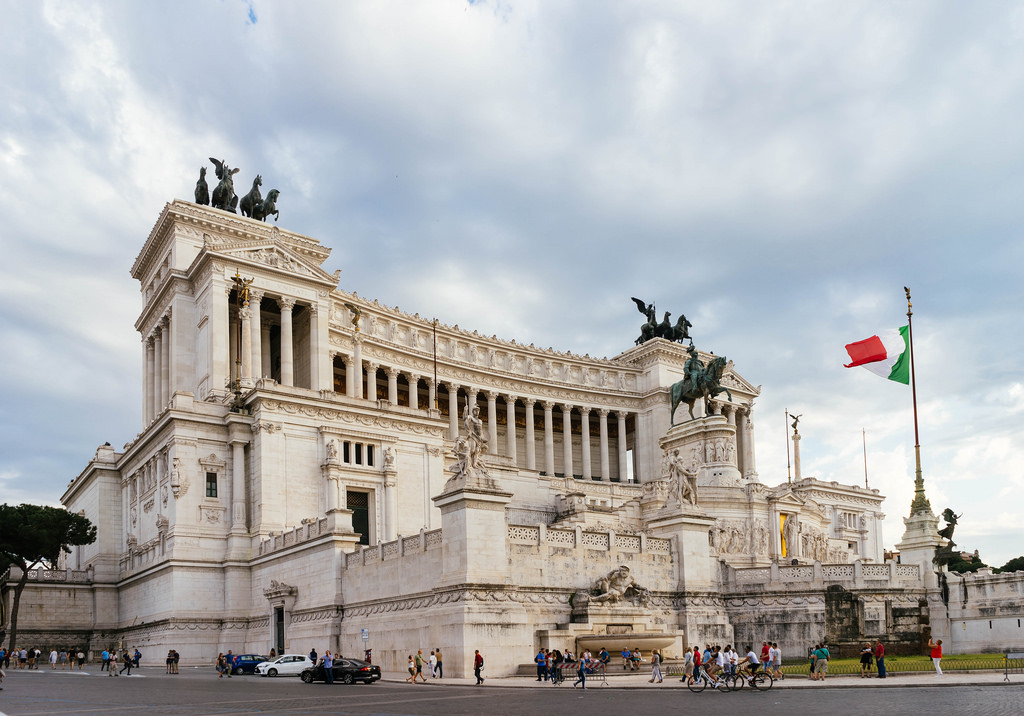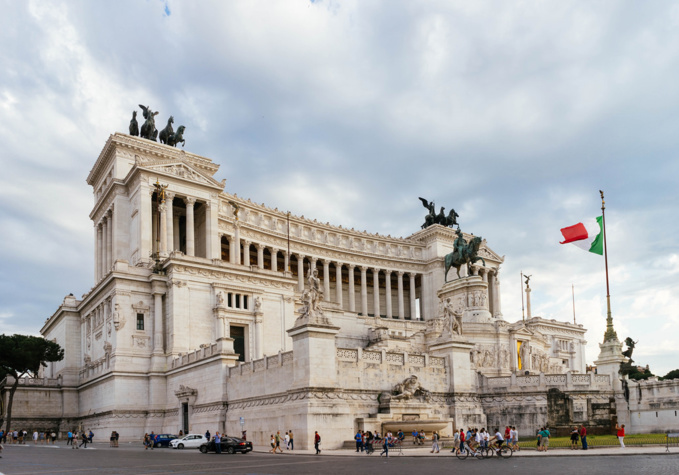To start, the Five Star Movement and the Northern League developed a joint program that combined extreme right and extreme left views, which makes it a nightmare for any official. For example, they managed to combine the Five Star Movement’s demands of high costs and reduction of taxes, advocated by the Northern League. However, the parties’ leaders Luigi Di Maio and Matteo Salvini seem to have forgotten about Italy's huge debt, which is 130% of GDP, and the rules adopted by Brussels on fiscal consolidation.
The new government of Italy will demand that the European Commission reform consumer, services, capital and labor markets. The populists want Brussels to radically change the EU's migration policy. They do not agree with the banking reform, which, in their opinion, will make life of ordinary Italians and small businesses on the peninsula even worse.
If Italy does not succeed in making its point, it cannot, like the United Kingdom, walk away and slam the door. But this is precisely what makes the Italian populist threat to the European project even scarier. Italy is an integral part of the euro zone, it is rooted in the European Union much deeper and stronger than Britain. Italy will remain in the united Europe and will effectively undermine it from within.
Unlike Greece, Italy is too big to be ignored, and it is impossible to force the country to do something. All this is fueled by a great many unresolved economic and financial problems. In addition to the huge debt, it is enough to name the largest and most notable ones: a low standard of living, high unemployment, a weak banking system... If Italy starts a new crisis, it will quickly grow into a pan-European one.
There’s many troubles that the Italian government can cause to Brussels. The European Commission tried to put the best face on matters and already reminded Italy of the need to comply with the EU's main budgetary rule - the budget deficit should not exceed 3% of GDP.
However, the office of Jean-Claude Juncker still hopes for the best. Brussels still can get away with it if the ruling coalition collapses under the weight of contradictions and disagreements between its main participants. This, of course, is possible. On the other hand, there are no precedents of agreement between such unlike and even opposite parties as the Five Star Movement and the Northern League. They managed to find compromises and create a coalition and nothing, at least theoretically cannot prevent them from carrying on for the benefit of ordinary Italians, as they themselves hope.
Of course, we should not underestimate the rigidity and strength of the Brussels bureaucracy. For many decades, it has been managing to achieve its goal despite resistance from all sides. Europeans did not want a single currency, but still received it thanks to Brussels. Successive phases of political integration were met with strong resistance, they were even rejected from time to time in referendums, but they were nevertheless accepted. European officials are still the main power there.
There’s also a possibility that, having come to power, the right and left populists will calm down. At least, there are many such examples. Not everyone can withstand power.
Time will tell how events will develop further. The further deepening of pan-European integration will be discussed at the June summit, on which Italy will probably already be represented by new leaders. The position that the country will take on these debates will show what to expect from its new government.
source: reuters.com
The new government of Italy will demand that the European Commission reform consumer, services, capital and labor markets. The populists want Brussels to radically change the EU's migration policy. They do not agree with the banking reform, which, in their opinion, will make life of ordinary Italians and small businesses on the peninsula even worse.
If Italy does not succeed in making its point, it cannot, like the United Kingdom, walk away and slam the door. But this is precisely what makes the Italian populist threat to the European project even scarier. Italy is an integral part of the euro zone, it is rooted in the European Union much deeper and stronger than Britain. Italy will remain in the united Europe and will effectively undermine it from within.
Unlike Greece, Italy is too big to be ignored, and it is impossible to force the country to do something. All this is fueled by a great many unresolved economic and financial problems. In addition to the huge debt, it is enough to name the largest and most notable ones: a low standard of living, high unemployment, a weak banking system... If Italy starts a new crisis, it will quickly grow into a pan-European one.
There’s many troubles that the Italian government can cause to Brussels. The European Commission tried to put the best face on matters and already reminded Italy of the need to comply with the EU's main budgetary rule - the budget deficit should not exceed 3% of GDP.
However, the office of Jean-Claude Juncker still hopes for the best. Brussels still can get away with it if the ruling coalition collapses under the weight of contradictions and disagreements between its main participants. This, of course, is possible. On the other hand, there are no precedents of agreement between such unlike and even opposite parties as the Five Star Movement and the Northern League. They managed to find compromises and create a coalition and nothing, at least theoretically cannot prevent them from carrying on for the benefit of ordinary Italians, as they themselves hope.
Of course, we should not underestimate the rigidity and strength of the Brussels bureaucracy. For many decades, it has been managing to achieve its goal despite resistance from all sides. Europeans did not want a single currency, but still received it thanks to Brussels. Successive phases of political integration were met with strong resistance, they were even rejected from time to time in referendums, but they were nevertheless accepted. European officials are still the main power there.
There’s also a possibility that, having come to power, the right and left populists will calm down. At least, there are many such examples. Not everyone can withstand power.
Time will tell how events will develop further. The further deepening of pan-European integration will be discussed at the June summit, on which Italy will probably already be represented by new leaders. The position that the country will take on these debates will show what to expect from its new government.
source: reuters.com



















